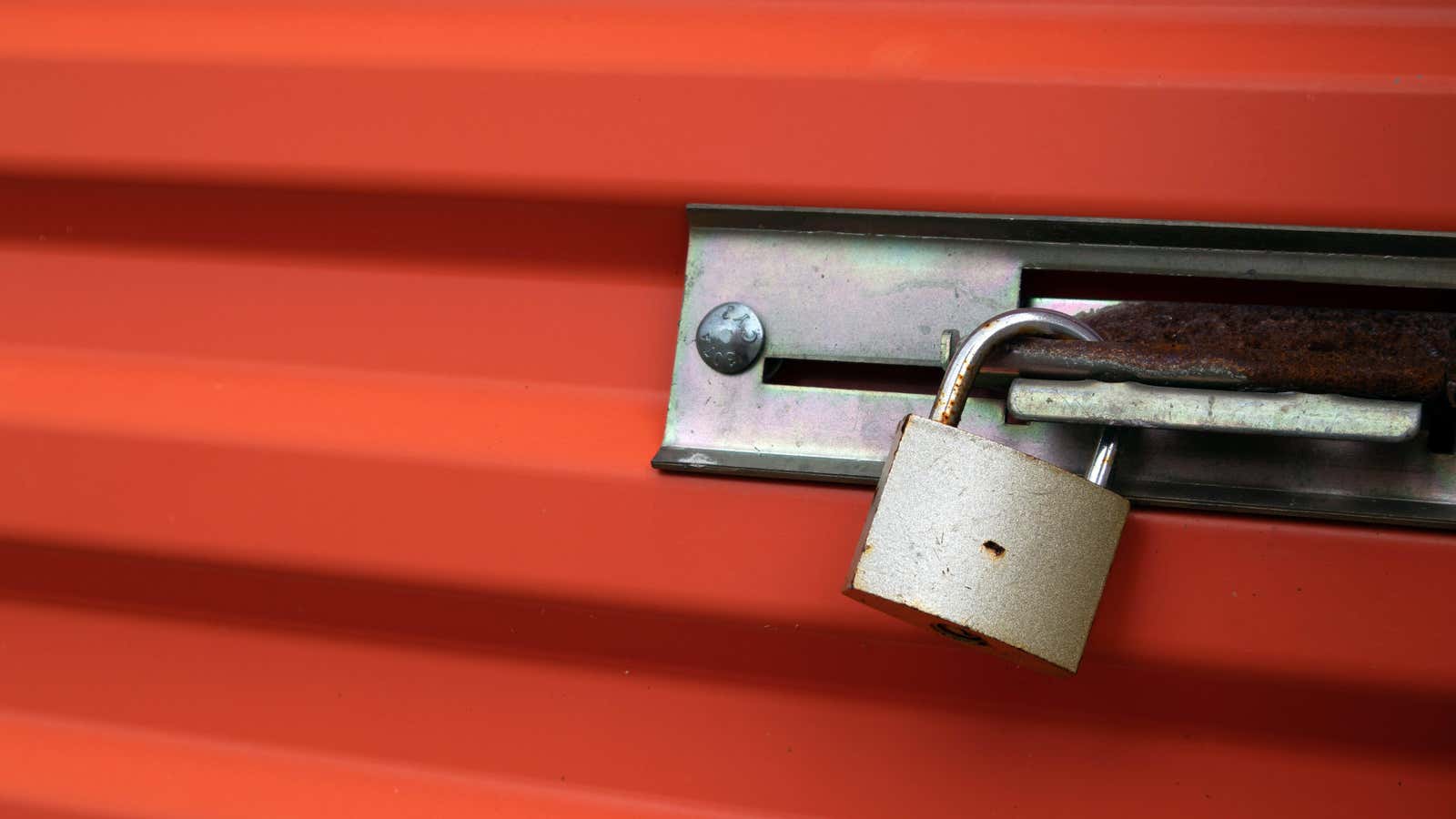Never Store These Things in Storage

Storage boxes can be a temporary solution during a move or help keep clutter to a minimum – holiday decorations, out-of-season clothing, sports equipment, etc. But there are things that shouldn’t be stored in such a space. While a storage room may seem similar to a garage or basement, there are important differences for storing your belongings.
Obvious: Hazardous, flammable or combustible materials.
Hazardous, flammable or combustible materials should not be stored in storage as they could damage the building in which the unit is located, not to mention they pose a serious safety hazard to people working on site. Propane tanks, liquid tiki torches, fireworks and ammunition should be stored elsewhere. Most data storage companies will provide you with a list of what is prohibited there, so be sure to check it out before breaking the rules.
Also do not store food
Food is another thing that is best kept at home. Since your warehouse is often located in a larger area with other facilities and may not be visited by people, pests such as mice and rats can enter your unit. Even if your products are well sealed, they can damage containers and other items inside. Warehouses don’t check for and exterminate pests like an apartment building or other residential building, so if there’s an infestation, it can go undetected for months and not be addressed.
This is not the best place to hide money or valuables.
Expensive items such as jewelry, art, or money are difficult to trace and should not be left unattended in storage. Even if security measures are followed, the chances of recovering such items after they have been seized are slim. Also, since there are often limits on insurance payouts per storage unit, you may not even be compensated in the event of a loss. Valuables are best kept in a safe.
Do not keep titles, documents or bills of sale
It is not recommended to store important documents in a cabinet. If these items are missing and there is no record of them being there, it can be difficult to prove you originally had them or get a replacement. Paper products are also susceptible to moisture damage, so storing them in an unclimate-controlled space can be a disaster. Documents such as title deeds, deeds and bills of sale should be kept in a fireproof box or safe deposit box.
Everything is wet
Clothing, bedding, or other wet or damp items should not be stored in storage. These items include camping and outdoor gear, sports equipment, tarps, and waterproof clothing. They run the risk of never drying out if kept in a small, unventilated area, so they can encourage mold and mildew growth. Because most insurance policies don’t cover mold and mildew damage, you won’t be able to claim these items or anything else in the device in the event of water damage. It’s best to double-check to make sure everything is completely dry before it hits the device.
Can’t store tires in storage
Tires are usually off-limits because they are great fuel for a fire and are also expensive to dispose of if left behind. It’s okay to have tires on a properly registered and insured vehicle in your division, but you shouldn’t store any extras there, as they are likely against the rules.